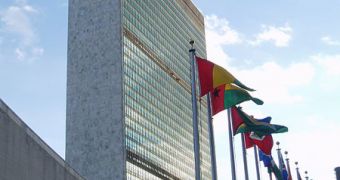According to a bleak prediction released by the United Nations on Tuesday, the world could lose up to 25 percent of its food supply by no later than 2050, on account of the devastation that will be triggered by global warming and climate change. Among the most serious effects, the report enumerates soil erosion, degradation and loss, water scarcity, as well as species infestation. These combined factors make for a very potent threat on the entire world, the UN cautions, and should not be taken lightly.
According to the UN Environment Program (UNEP), the drop in food production will strike at the worst time possible, as, by 2050, estimates say that another 2 billion people will be added to the world's total population.
But fish stocks worldwide are already declining, and in some places there's a real possibility that the fisheries will disappear altogether, on account of massive exploitation. As far as agriculture goes, production has stagnated globally over the past few years, and, if anything, it will decrease due to increased negative influence of natural factors.
In addition, UNEP draws attention to the fact that the century-long tendency of low food prices may come to an end, as evidenced by the fact that, last year, the sharp increase in costs drove more than 110 million people into poverty. And while, in some areas of the world, prices have been lowered from their record-high values, that's no reassurance that they will stay that way, especially considering the volatility of the market and the global international crisis.
“We need to deal with not only the way the world produces food, but the way it is distributed, sold and consumed, and we need a revolution that boosts yields by working with, rather than against, nature. There is evidence within the report that the world could feed the entire projected population growth alone by becoming more efficient while also ensuring the survival of wild animals, birds and fish on this planet,” Achim Steiner, the executive director of UNEP, explained.
The report also called for “safety nets” to be deployed, to ensure that the massive number of people didn't die of starvation. The official also advocated the necessity of introducing regulations for food prices, so that private companies would no longer have the right to set their own, at the expense of people's lives. Also, Steiner added, large portions of crops needed to be stored by states, so as to avoid producers artificially increasing costs. As soon as little quantities are available, the UN would intervene and fuel the market with more products, thus decreasing prices.
“We have a very serious problem on our planet. Simply ratcheting up the fertilizer and pesticide-led production methods of the 20th century is unlikely to address the challenge,” Steiner concluded.

 14 DAY TRIAL //
14 DAY TRIAL //